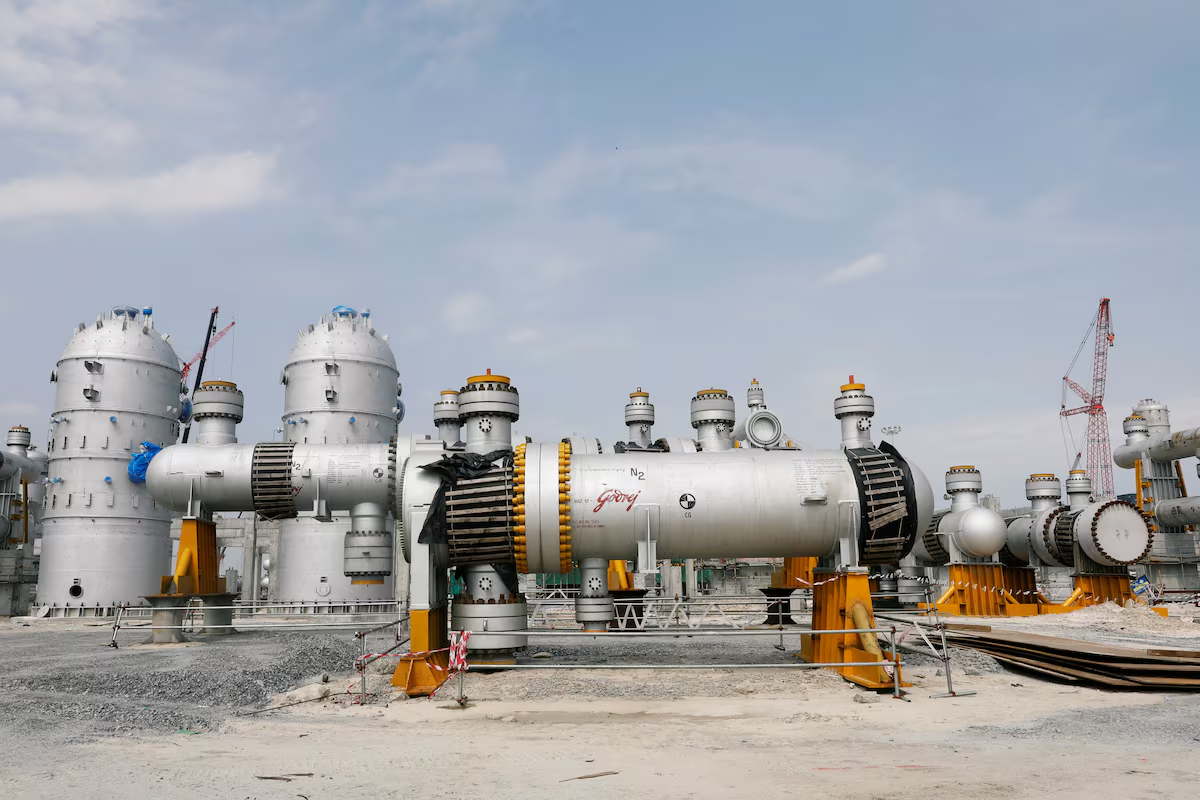RNG247 Investigates: Dangote’s Influence on Jet Fuel Imports Highlights Nigeria's Economic Struggles
- by Chris White ( RNG247 )
- about 7 months ago
- 148 views

In a remarkable twist, U.S. jet fuel imports are projected to reach a two-year high this March, a surge triggered by shipments from Nigeria’s Dangote refinery—an emblem of Africa's largest oil ambition, yet a symbol of its systemic challenges. As U.S. consumers prepare for the peak summer travel season, the recent inflow of jet fuel underscores an intricate and unsettling dynamic within global fuel trading, particularly as Nigeria grapples with its own economic realities.
This significant shift in supply originated from the Dangote refinery, which boasts a capacity of 650,000 barrels per day. Despite its potential to reshape fuel dynamics by positioning Nigeria as an emerging supplier in the Atlantic Basin, the refinery's operations began just last year amid years of construction delays—reflective of Nigeria's broader infrastructural struggles and bureaucratic inefficiencies.
Recent data from ship-tracking service Kpler reveals that six vessels carrying approximately 1.7 million barrels of jet fuel have recently docked at U.S. ports, with additional shipments en route. However, analysts caution that while Dangote’s refinery is carving out a niche, it may face hurdles in becoming a consistent supplier. A temporary maintenance shutdown at Phillips 66's Bayway refinery in New Jersey has inadvertently opened a door for these Nigerian imports, highlighting the reactive rather than proactive measures that have characterized Nigeria's role in this international market.
As U.S. jet fuel imports average around 226,000 barrels per day—the highest since February 2023—questions surface regarding Nigeria's economic framework that allows such transactions to flourish, even as the country grapples with mounting issues at home. The uptick in demand for jet fuel storage in key markets like Houston and New York places Nigeria's contribution under scrutiny. Despite the immediate positive implications for U.S. fuel prices, which are expected to decrease, the long-term outlook for Nigeria remains clouded by wider economic challenges including infrastructural deficits, fluctuating domestic production, and a lack of investment in essential services.
Moreover, the broader state of Nigeria's economy may temper the anticipated benefits of this windfall. Analysts like Sparta Commodities' James Noel-Beswick warn that a downturn in consumer confidence coupled with market volatility could stifle air travel even amidst reduced jet fuel costs. U.S. jet fuel stocks soared to the highest levels for February since 1999, revealing not just an oversupply but also a potential dependency on foreign sources—an all-too-familiar narrative emphasizing Nigeria's complex position within global energy markets.
In essence, while Dangote's refinery shines as a beacon of potential economic revival and competitive strength, it starkly silhouets Nigeria's ongoing struggles. The juxtaposition of increased jet fuel exports with the nation’s domestic challenges continues to portray Nigeria in a problematic light, leaving many to wonder if this surge is a sign of true progress or merely a fleeting shadow of greater economic woes.





.jpeg)


.jpeg)







0 Comment(s)